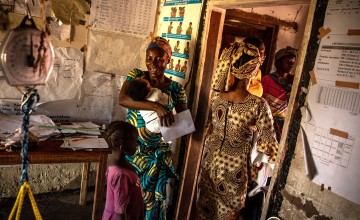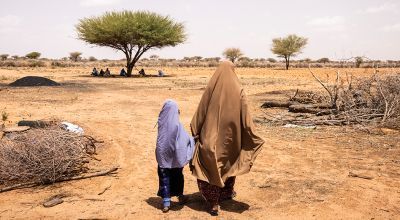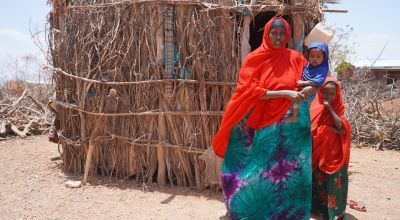
Read our 2024 annual report

Knowledge Hub
Upskilling medical staff and upgrading medical facilities, emergency food treatment, preparing for shocks, delivering cash support and nutrition education to parents are just some of the methods used in an innovative three-year programme that aimed to tackle malnutrition in children aged under five.
The Enhanced Responses to Nutrition Emergencies (ERNE) programme has reached more than 1.2 million people in Ethiopia, Niger, Republic of Sudan, South Sudan and the Democratic Republic of Congo (DRC) since it began in June 2020.
Through ERNE, which is funded by the European Union (EU), Concern Worldwide combines lifesaving emergency nutrition treatment and prevention and preparedness activities to build community resilience to malnutrition in the longer term in fragile, conflict affected and disaster-prone countries.
The programme has supported over 304 healthcare facilities for Community-Based Management of Acute Malnutrition (CMAM) during this time.
Here we meet some of the parents and healthcare workers who have been involved in the ERNE programme, who shared their stories and the impact the programme had.
Ethiopia: How ongoing drought devastated a family's income
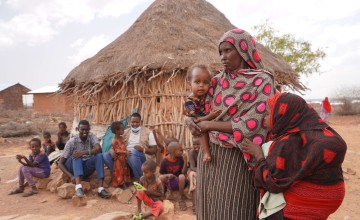
Bishaaro Abdulahi Omar and her husband have seen their family's source of income destroyed during a devastating ongoing drought in Ethiopia.
At one point Bishaaro and her husband had 150 goats in their herd and several camels but six failed rainy seasons decimated their herd and the couple is struggling to support their 12 children.
Bishaaro's children have undergone screening at a local health care centre, which is supported by Concern, and her daughter received treatment for malnutrition.
Through the ERNE programme, Bishaaro received a monthly cash payment, enabling her to buy rice, pasta, potatoes and tomatoes and prepare regular meals for her family.
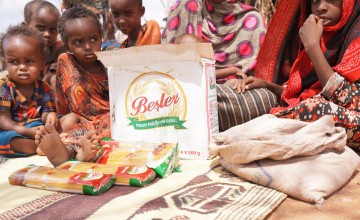
Niger: "We have all benefitted from the garden"
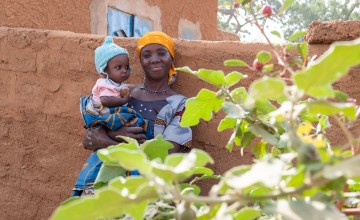
Ramatou Ayouba visited a Concern health clinic in Niger after her son Attikou became severely malnourished at seven months old.
After he received treatment, Concern supported the family with seeds to plant a garden, so they could improve the diversity of their diets and provide year-round nutrition.
Ramatou said: "My child started vomiting and then had diarrhoea so I took him to the health centre. His condition was getting worse and worse and he ended up with severe malnutrition. That is why I’ve started growing more food.
"The home garden is very helpful for feeding my family. A few weeks ago, there were a lot more vegetables growing here - but we’ve picked them now. We’ve been cultivating vegetables for a year. We have really benefitted from the home garden, and not just the children, we have all benefitted from it.
“Recently, I received a hygiene kit, some mats, kitchen utensils and a water filter so I can properly look after my children. We also received sleeping mats and a kettle for boiling water.”
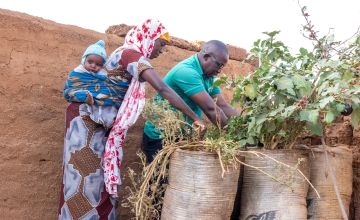
Republic of Sudan: Starting again after the fire
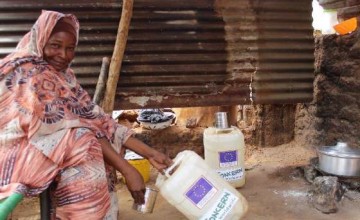
Fatima Shaaldin’s family was devastated when they lost what few possessions they owned when their house was one of several destroyed in an accidental fire in 2020.
While this would be tough on anyone, it can be even harder for someone living in extreme poverty to recover from.
Fatima was relieved to receive some potentially life-saving essentials through ERNE, including clean jerry cans for water, blankets, bed sheets, cooking tools and soap.
South Sudan: "A great relief"
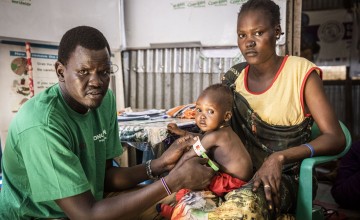
"The food we get is never enough. There is not enough to go around. But it is good Concern is here. They visit communities and search for malnourished children, even if we have not even called them”.
Nyahok Diew experienced every parent's nightmare when her 10-month-old daughter Nyariek became unwell. The infant initially suffered from diarrhoea and was vomiting, she then developed a fever.
Nyahok was understandably very worried when she brought her daughter to a health care centre in Unity State in South Sudan, which is supported by Concern. As part of the ERNE programme, the staff there had received training in how to identify and treat malnutrition in young children.
After being screened by the staff, Nyariek was diagnosed with malnutrition and was put on a course of "plumpy nut", a nutrient-rich paste designed to treat the condition.
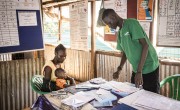
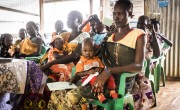
“After coming to the clinic for the second time, I have found that my child is gaining weight. Which is a great relief”
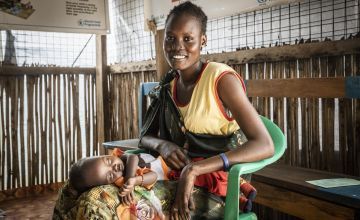
DRC: The nurse, and mother of eight
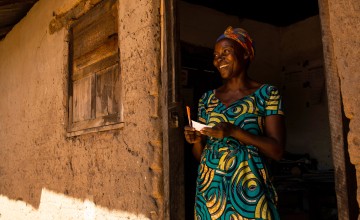
Nurse Leonie Kamono is one of the frontline workers in the fight against malnutrition, she works at the Kiambi Health Centre in DRC and also acts as a midwife.
Mother-of-eight Leonie has completed training through ERNE to gain expertise in identifying and treating malnutrition in young children. She explained: "I consult pregnant women, assist them with childbirth, act as a midwife and do consultations."
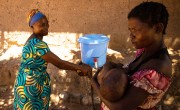
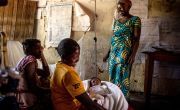
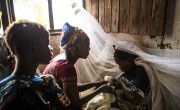
"To detect the cases (of malnutrition), we take the weight and height of the child, if they are less than the benchmark, we take care of them… if we have the emergency food in stock, but if we do not have any, we [can only] advise the mother to feed the child more."
